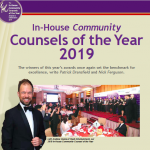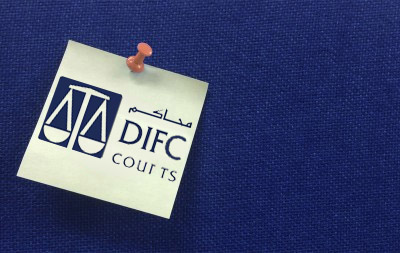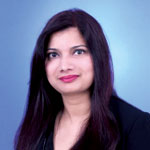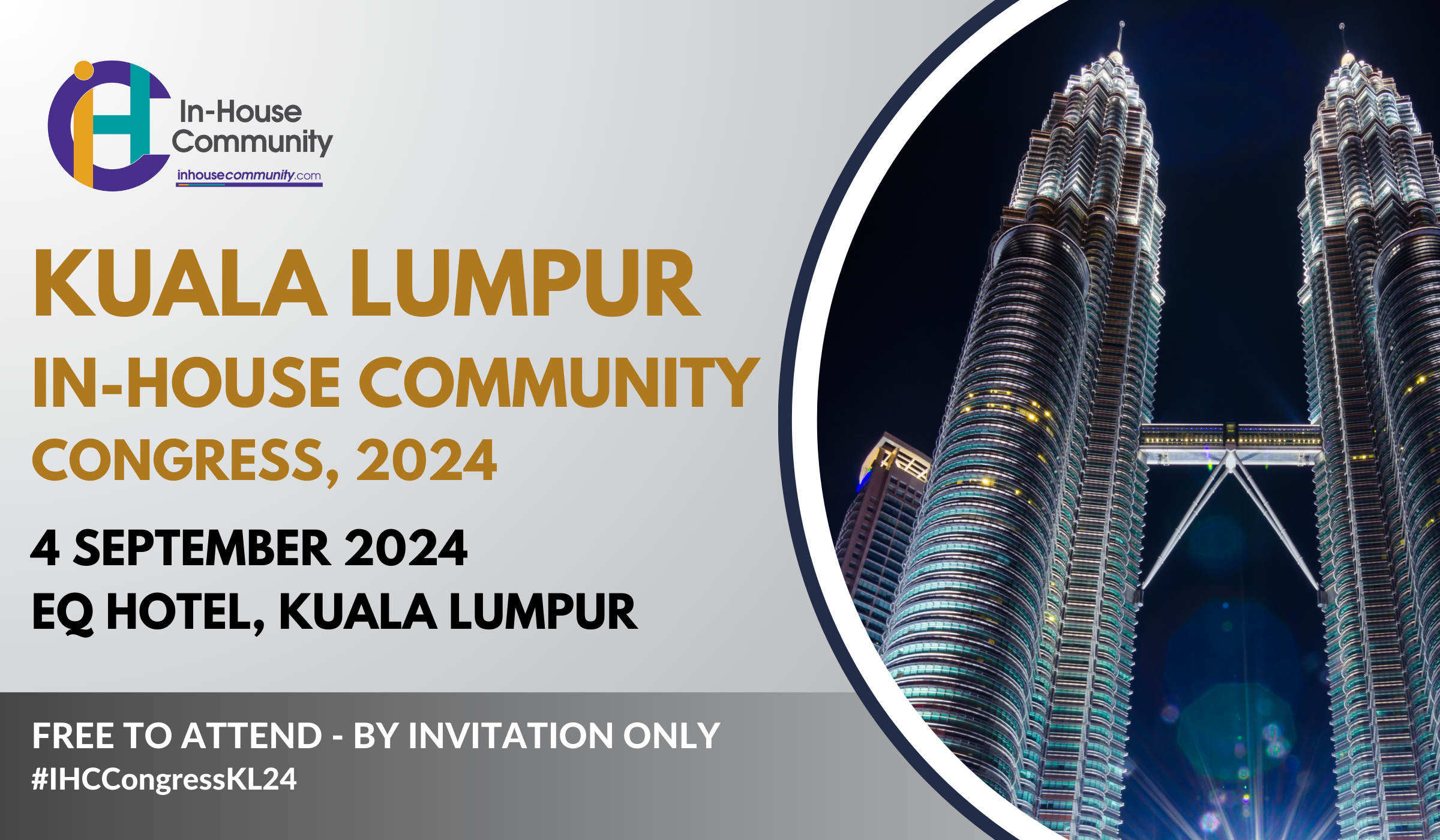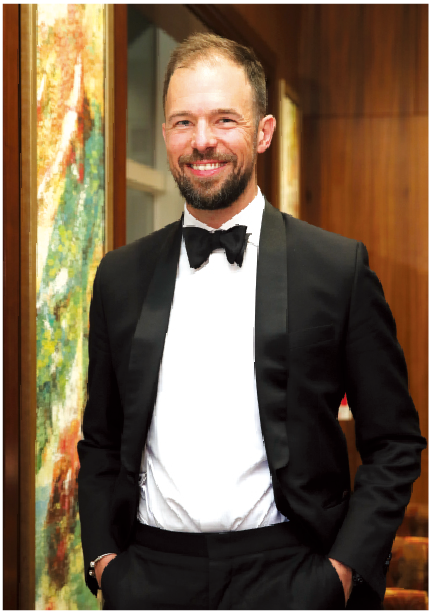
We speak to the head of strategy and general counsel for Flash Entertainment, and our In-House Community Counsel of the Year, about running an in-house legal team and his outlook for the profession.
By Nick Ferguson, In-House Community
Flash Entertainment is an events company based in the United Arab Emirates. It hosts some of the biggest events in the region, including world-class sports, A-list musical acts, festivals, stage shows and community events.
Overseeing the legal aspects of a company that puts on events for millions of people a year is a challenging proposition that requires a general counsel with a broad range of skills.
Asian-mena Counsel: Can you describe your professional background and your current role?
AC: I worked for Norton Rose in London, Prague and Dubai. Having qualified into dispute resolution, I subsequently transferred into M&A, focusing on telecoms and retail.
I joined Flash Entertainment in 2011 as its first legal counsel. During my eight years with the company I’ve had responsibility for IT, HR, internal audit, company secretarial matters and business continuity. Today my title is head of strategy and general counsel.
AMC: How big is the team you manage and how is it structured?
AC: Three is the magic number for both De La Soul and Flash Entertainment! I’m joined by my superstar colleagues Elham Al Marzooqi and Akshay Narula.
We operate within a workstream framework, the purpose of which is to push responsibility down to the lowest level possible across everything we do. Using structured workstreams also facilitates management to strengths — because we can shine a spotlight on to capability within a specific aspect of our responsibilities — and identifies areas for growth.
AMC: What are the biggest challenges you face in this role?
AC: Because I was Flash’s first legal counsel, I started with a relatively clean sheet of paper in terms of departmental design.
My primary challenge was to address client perception of what a legal department exists to do and how it interacts with the business. My experience suggests there are two types of clients: those who ‘get’ what the legal department wants to achieve and understand that building an effective process to lower business risk requires collaboration; and those that have a much more fixed conception of legal as the place you go to get paperwork done. The process of moving clients along this spectrum, from the latter type to the former, is a battle for hearts and minds.
For this reason, we spend a lot of time on internal outreach work. During the Pope’s visit to the UAE in February 2019, I worked with the transport team, helping load more than 100,000 devotees off and back onto buses; my colleague Akshay worked in our joint operational command centre, logging incidents and helping to distribute resources; and my colleague Elham helped with lost children. For other events we have sold tickets, shown fans to their seats in grandstands, and worked in the operational control centre. These activities have been incredibly helpful in generating empathy and furthering relationships.
AMC: What are the most important qualities of a good general counsel?
AC: First, a clear view of what the legal department exists to do. I strongly endorse the development of a vision and mission for the legal department — it can really help generate focus and meaning.
Second, having a plan. What resources do you have — human, monetary, know-how, IT, etc? How will you deploy them in support of your vision and mission? How do you give your team visibility on issues so that they are not constantly firefighting?
GCs should have good answers to these questions.
Third, the GC is an office; it’s an institution. It is something you are appointed to which means something more than ‘just a job’. So you need to be aware of your behaviour and the messages you send through the things you do and say. This is the proper context for the requirement that GCs should have, for example, a decisive approach to decision-making, and bulletproof integrity; that’s because the office of GC demands these kinds of behaviours.
AMC: How is technology changing the way you work?
AC: Building on my response regarding resources, above: we look at tech as something to be harnessed rather than beholden to, to the extent that is possible! I am grateful to bigger, much better resourced teams than mine, who have spent millions on products that are of zero use to us (like e-discovery solutions and fancy DMSs) but which have created a market for the kind of creative, niche vendors who we are interested to work with. For example, our contract-building chatbot has fully automated our volume contracting workflow — it cost us time, a bit of thought and the cost of a rounding error on a magic circle firm’s bill.
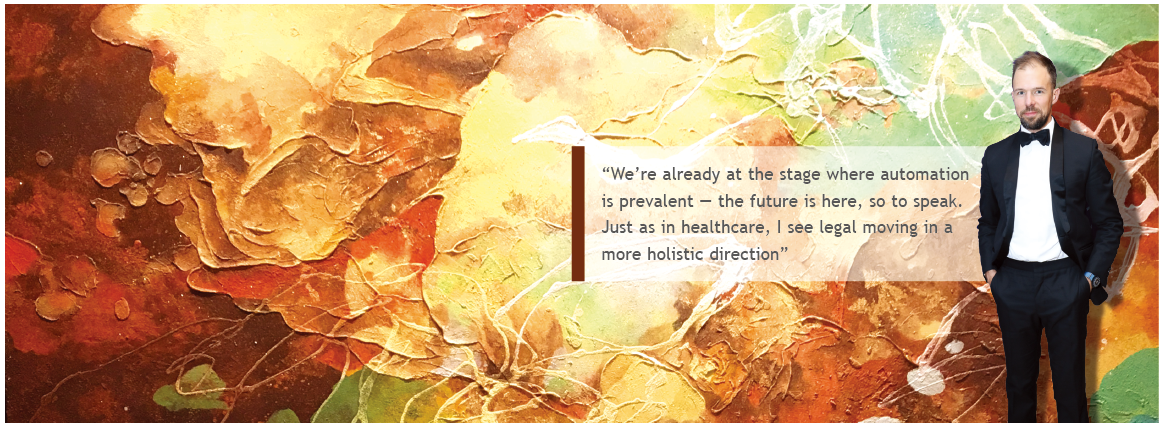
AMC: Has the in-house legal function changed significantly during your career?
AC: Absolutely. There’s now clear water between the skillset of counsel in-house and in private practice. In the Middle East I think the difference is particularly marked because (at least anecdotally) many in-house counsel have seen both the companies they advise, and the nature of the risks those companies face, change rapidly during their tenure. Growing with these business has given in-house counsel a deep understanding of how they work, which is near impossible to replicate as an external adviser. That’s why you see the responsibility of in-house counsel really expanding: first, you take a smart person with natural authority; then you have them engage and regularly problem-solve with multiple business departments, giving them fantastic business empathy — and, surprise, fantastic results.
AMC: What do you look for in external counsel?
AC: Readiness to operate within our process flow. That sounds a bit cold but it’s amazing how hard some counsel find it to comply with our rules around the quality of narratives, or who break through a cap without prior notice and expect us to meekly accept it.
AMC: What type of work (and how much) do you outsource to external firms?
AC: As little as possible (or alternatively as much as our process requires). Our mission as a department includes long-term value return to our shareholder. In most instances, it is more aligned with this mission for my team to create a solution and optimise it over time than it is to create a short-cut through the engagement of counsel. The main exceptions are administrative work, like the maintenance of trademark portfolios or the renewal of trade licences; new market analysis, where local insight is advantageous; and frontier work where the initial learning curve is too steep for us to confidently attack.
AMC: Looking forward, what changes do you foresee in the way that legal services will be provided in the future?
AC: We’re already at the stage where automation is prevalent — the future is here, so to speak. Just as in healthcare, I see legal moving in a more holistic direction. Risk management will shift from infrastructure to behaviour, and lawyers are going to have to make the same transition — away from paperwork and towards people.
AMC: What advice can you give to young lawyers starting out in their careers today?
With very limited exceptions, I love lawyers. They’re commonly clever, opinionated, hard-working, goal-oriented high achievers. They get things done. Sometimes this can get lost or forgotten, particularly for lawyers working in big firms (where these kinds of behaviours are common; if you were to look for the incidence of these behaviours across the general population, law firms would be a statistical anomaly).
So my advice to young lawyers is: recognise your worth. Do something that creates meaning in your life and which makes the most of your many wonderful capabilities. In my career I have moved from litigation to M&A and from M&A into entertainment; so don’t focus relentlessly on practice area, because you can change it if you want to.
AMC: What are your interests outside of the legal profession?
AC: My wonderful family, of course, including a dog called Chief who is better across every conceivable measure than any dog owned by anyone reading this column.
Working in entertainment allows me the opportunity to mix work and pleasure, which is a blessing; if Flash was more involved in cricket and cycling (and we are ready to help!) then the Venn diagram of these two worlds would finally become a circle.
To read the full 2019 Counsels of the Year report, click here.


